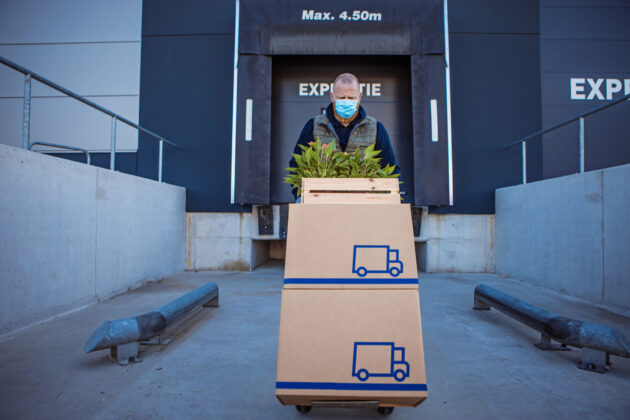How to survive a post-Covid supply chain
Congratulations to Canadians whose collective response to the Covid crisis has been ranked among the best in the world.
As we slowly reopen the economy I’m seeing signs of stability and recovery. Not only is freight moving, access to capital is improving. Many of the truckers I speak with say they experienced a significant uptick in business during June, and business conditions are feeling more normal than they have in months.
Traditionally, the weeks leading up to the Canada Day celebrations are busy as groceries, retail freight, and fresh produce make their way though the supply chain. With the peak of summer behind us, what’s next as fleets adapt in preparation for the full economic rebound?

Here are a few supply chain trends that I believe will be with us long after Covid:
Closer to home
China has been central to global supply chains since the early 1990s. Since then, low-cost-country sourcing and offshoring have become the foundations of global trade.
The pandemic exposed the risks that come with single-source manufacturing especially in countries with authoritarian governments.
How would a contraction in global trade affect you and the type of freight you haul? A post-Covid world will look different as businesses bring production and distribution closer to their end customers and prioritize supply chain resilience and security over cost.
Shop from your couch
Online shopping is one part of the economy that’s grown exponentially during the pandemic. I can’t believe how much my family’s buying patterns changed in four short months.
Covid has accelerated the retail apocalypse and the buy-from-the-couch/pick-up-at-the-store model. Malls are going belly up. Every week another iconic retail brand shuts its doors. A report by UBS predicts that 100,000 U.S brick-and-motor retail stores will close by 2025.
E-commerce is changing the trucking business but it’s also creating excellent vertical-market growth opportunities. As shippers localize their supply chains they’ll need more storage capacity situated closer to end-user customers. How you preparing for hauls that are shorter, shipments that are smaller, and customers who demand faster deliveries? It’s a question you just can’t avoid any longer.
Digitization of supply chains
Smart factories and automated warehouses are going to be essential if North American manufacturers are to compete with low-income countries on quality, cost, and delivery time.
In this digital transportation, shippers have the same service expectations of their trucking supplier as they do from Uber Eats.
Secure paperless and touchless document sharing will be a necessity. So will the need for instant, accurate information on every aspect of the transaction. If customers can’t monitor their shipment and your performance on their iPhone, they probably won’t be using you.
Also, there will also be more digital demands from your employees working from home or drivers working in regions where they might not feel as safe as they do back home. For the time being do you really want your driver sharing a pen with a shipper in the southern United States?
Take advantage
As suppliers and customers adapt to new distribution patterns and buying habits, truckers have opportunities to change with them and find new ways to increase their enterprise value.
Services like pick and pack, final-mile delivery, warehousing, and freight brokering aren’t necessarily capital intensive and can add some stickum to a transactional business like trucking.
It’s been a rough few months but now’s the time to expand customer relationships at a time when others are scaling back.
One of the many positive changes that’s coming out of the McCarron household post-pandemic is our “Buy Canadian” motto. It’s the least we can to help localize our economy. Thanks, fellow Canadians.
Have your say
This is a moderated forum. Comments will no longer be published unless they are accompanied by a first and last name and a verifiable email address. (Today's Trucking will not publish or share the email address.) Profane language and content deemed to be libelous, racist, or threatening in nature will not be published under any circumstances.